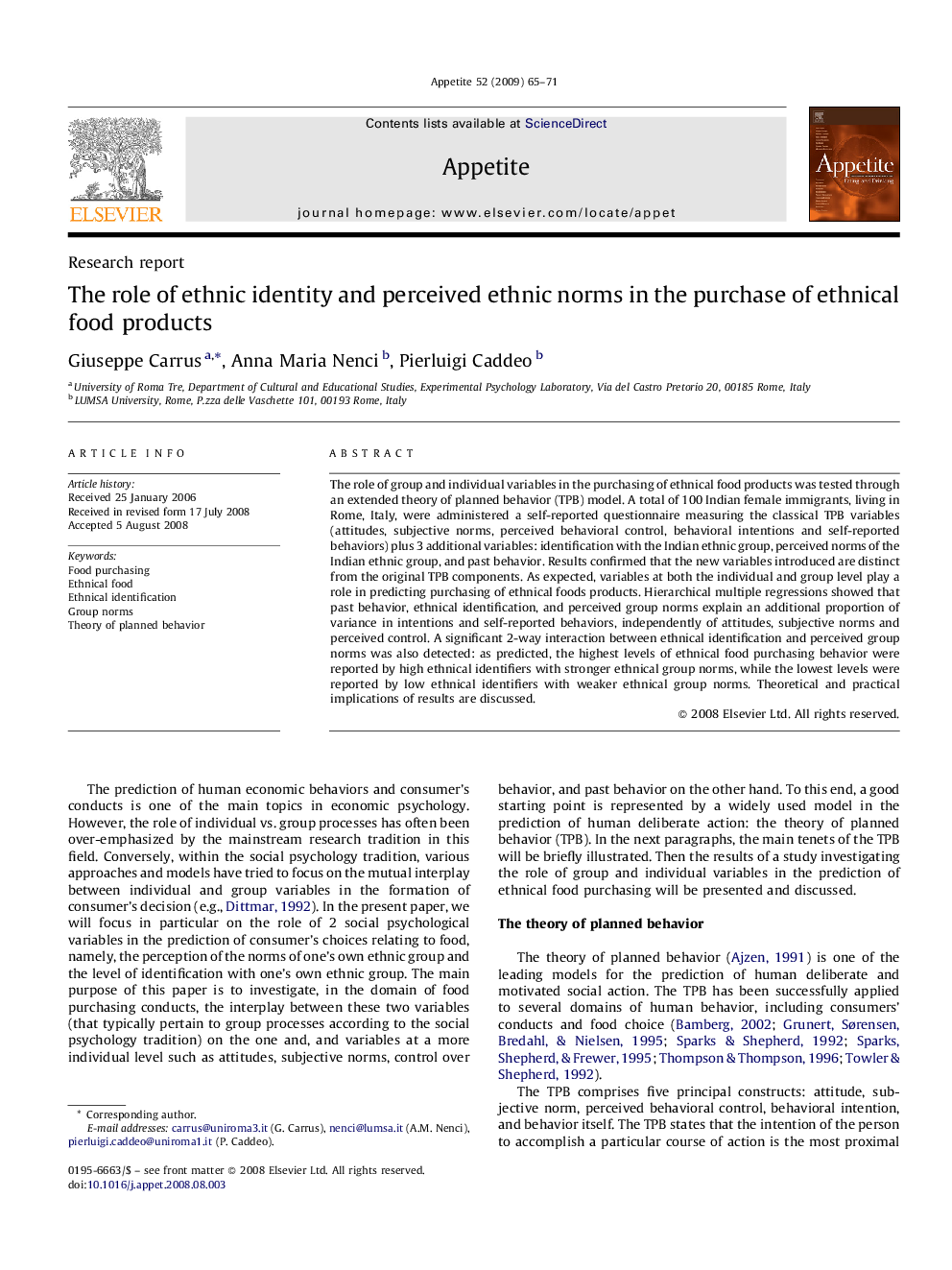| Article ID | Journal | Published Year | Pages | File Type |
|---|---|---|---|---|
| 941116 | Appetite | 2009 | 7 Pages |
The role of group and individual variables in the purchasing of ethnical food products was tested through an extended theory of planned behavior (TPB) model. A total of 100 Indian female immigrants, living in Rome, Italy, were administered a self-reported questionnaire measuring the classical TPB variables (attitudes, subjective norms, perceived behavioral control, behavioral intentions and self-reported behaviors) plus 3 additional variables: identification with the Indian ethnic group, perceived norms of the Indian ethnic group, and past behavior. Results confirmed that the new variables introduced are distinct from the original TPB components. As expected, variables at both the individual and group level play a role in predicting purchasing of ethnical foods products. Hierarchical multiple regressions showed that past behavior, ethnical identification, and perceived group norms explain an additional proportion of variance in intentions and self-reported behaviors, independently of attitudes, subjective norms and perceived control. A significant 2-way interaction between ethnical identification and perceived group norms was also detected: as predicted, the highest levels of ethnical food purchasing behavior were reported by high ethnical identifiers with stronger ethnical group norms, while the lowest levels were reported by low ethnical identifiers with weaker ethnical group norms. Theoretical and practical implications of results are discussed.
